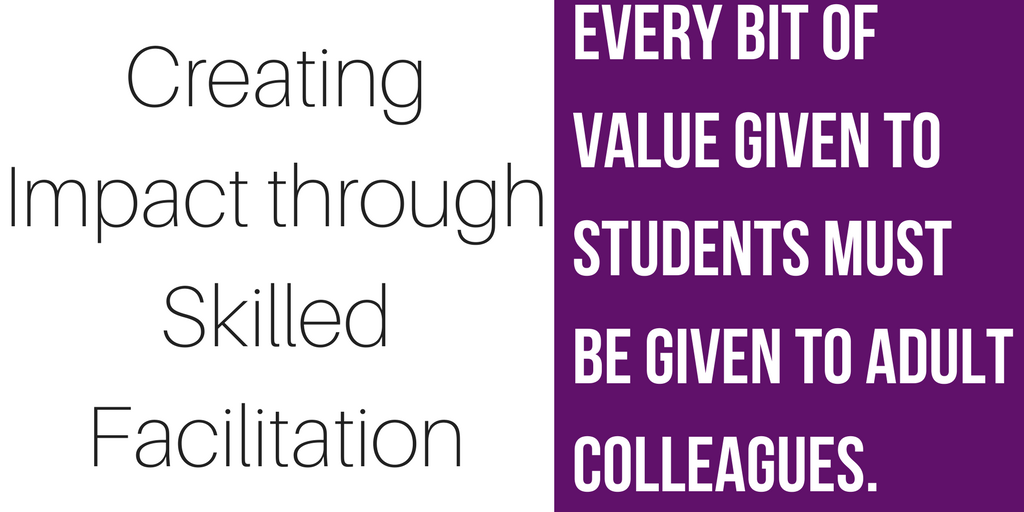In education, it is often said, “It’s all about the kids.” And that is right.
To ensure that’s the case, though, leaders have to be exquisite in the work and support given to the adults charged with student learning. Leaders have to facilitate teachers, teams and staff with the same deftness brought to the classroom—anything less than this creates incongruity in the learning community at the school and district level.
The mindset, skillset and disposition of facilitation, however, is challenging. Chances are that many in leadership positions arrived there because they were excellent classroom teachers. From this transition comes a whole series of assumptions about what was done well with students and how that will be replicated with adults and peers. As we often learn, the adult world of education presents much different challenges than the world of students—but, there are ways to overcome the, sometimes difficult, transition between student and adult learning.
Shift the Mindset
One key in making this transition successful is to shift the mindset to view working with adults as a way to achieve student success. Leaders can no longer hold solely on to what worked with students, and instead need to consider how to empower, develop and facilitate the adults who support students—as a peer leader or coach, the charge is to focus on adult learning, team development, trusting relationships and collaboration among teachers. Every bit of value given to students must now be given to adult colleagues.
Develop a New Tool and Resource Kit
A second key is to develop a new tool and resource kit. Protocols, norms, grounding and reflection take on vast importance when stepping into a new leadership role. Building communities of trust and respect are equally important with adults, but are developed with a different set of practices as facilitators. Collaborative structures must be used that support multiple ends. Skillful facilitation helps teams accomplish tasks at the same time team members develop their relationships and own learning.
 Craft New Skills
Craft New Skills
A third key is to craft a new set of skills that can be wielded as facilitators. Very intentional practices must be developed around listening for understanding. For instance, learn to synthesize and paraphrase complex thinking from groups of people; ask questions that build capacity in others to think and act with deep conviction; and hold balance between product, process and intention of teams.
While there are many deep connections between student and adult education practices, there are also very nuanced differences that make it necessary to develop new knowledge and skills for those who primarily work with adults and other educators—investing in becoming a skilled facilitator is a critical step to ensure adults are prepared to impact student success.
Learn More at an Upcoming PEBC Institute
In February 2018, PEBC is offering an Impact Through Skilled Facilitation institute where you can build on your knowledge and learn new skills to effectively support teams for a wide variety of purposes as a facilitator. Register to attend today!
Impact Through Skilled Facilitation
February 15-16, 2018, Denver, Colorado
In this engaging, expertly facilitated two-day workshop participants will learn to craft quality questions, deepen listening skills, wield protocols effectively and navigate group dynamics with intent. School and district leaders will gain the skills and dispositions needed to create a learning culture worthy of both students and teachers.

